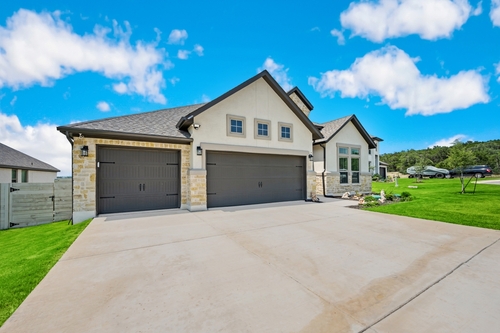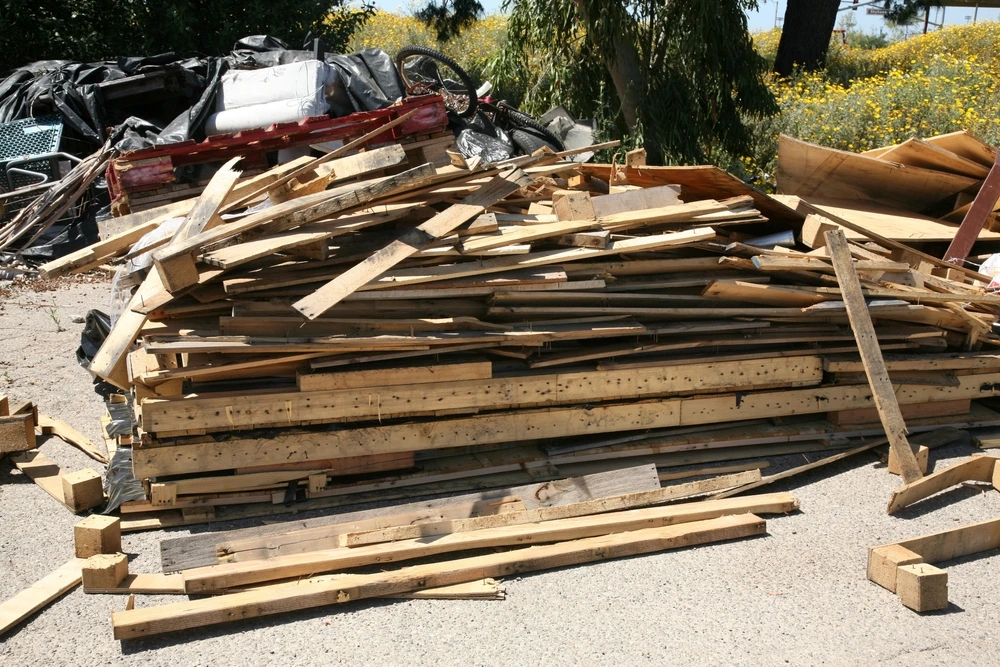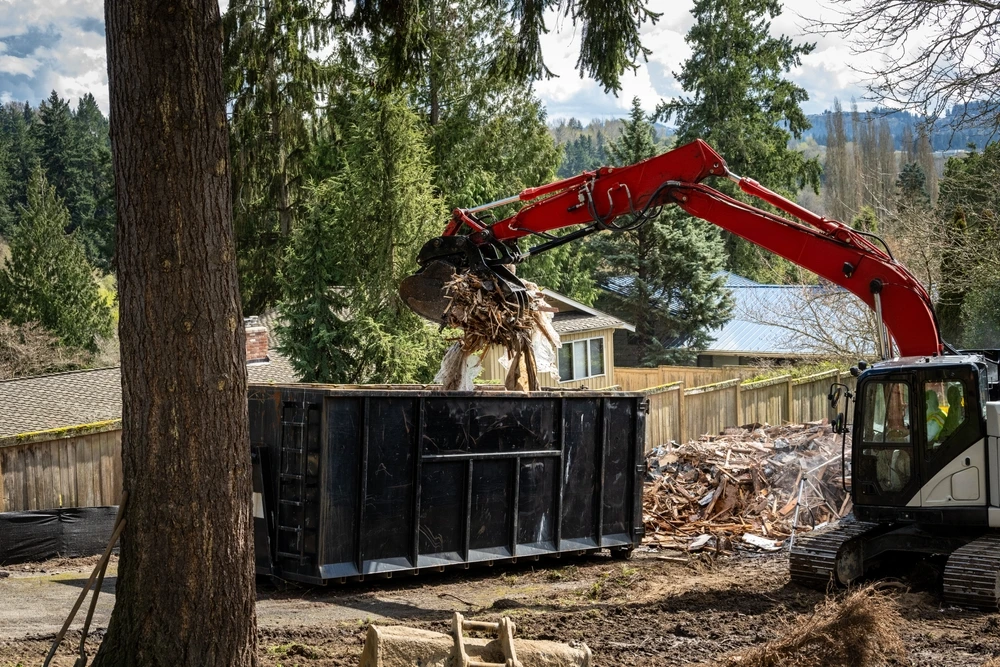Choosing the right material for your driveway is a significant decision for homeowners. Both asphalt and concrete have their distinct advantages and disadvantages. Understanding these differences can save you time, money, and effort in the long run.
Asphalt driveways tend to be more affordable to install, costing between $2 to $5 per square foot. However, they usually require more maintenance than concrete. On the other hand, concrete driveways come with a higher initial cost, ranging from $4 to $15 per square foot, but offer longevity and lower maintenance needs.
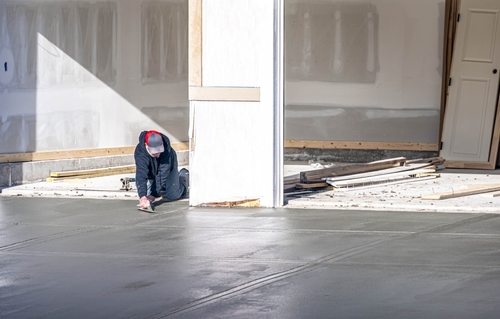 When selecting between asphalt and concrete driveways, appearance plays a significant role. The choice between these materials can dramatically impact your home’s curb appeal and ability to blend with its surroundings.
When selecting between asphalt and concrete driveways, appearance plays a significant role. The choice between these materials can dramatically impact your home’s curb appeal and ability to blend with its surroundings.
 When choosing between asphalt and concrete for your driveway, consider factors like cost, longevity, and maintenance. Each material has specific advantages and drawbacks that might make one more suitable than the other for your particular needs.
When choosing between asphalt and concrete for your driveway, consider factors like cost, longevity, and maintenance. Each material has specific advantages and drawbacks that might make one more suitable than the other for your particular needs.
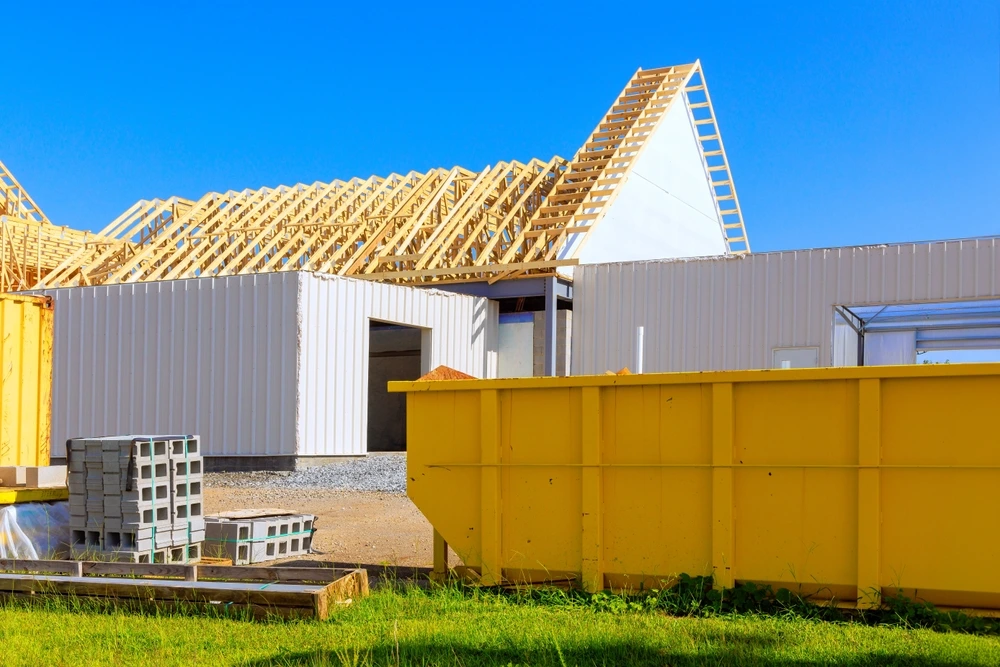 Beginner’s Guide to Dumpster Rentals: Essential Tips for Effective Waste Disposal
Beginner’s Guide to Dumpster Rentals: Essential Tips for Effective Waste Disposal
Date: September 18 ,2024
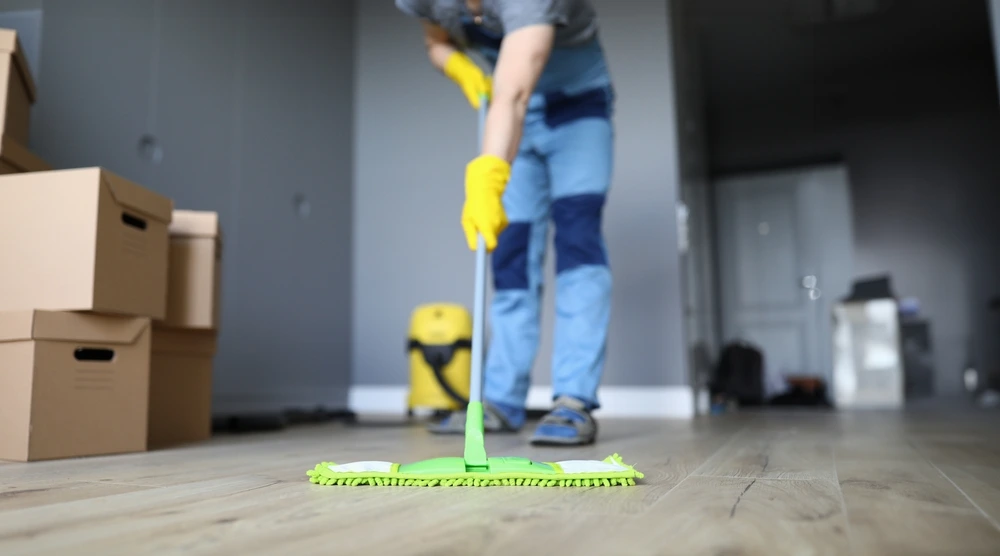 Comprehensive Move-Out Cleaning Checklist: Essential Steps for a Spotless Exit
Comprehensive Move-Out Cleaning Checklist: Essential Steps for a Spotless Exit
Date: September 16 ,2024
Key Takeaways
- Asphalt driveways are cheaper to install but require more upkeep.
- Concrete driveways have a higher initial cost but last longer and need less maintenance.
- Selecting the best material involves weighing factors like budget, durability, and maintenance.
Materials and Composition
When deciding between asphalt and concrete driveways, understanding the materials and their composition is crucial. Each option uses specific ingredients that influence durability, maintenance, and performance.Concrete Fundamentals
Concrete is primarily composed of cement, sand, stone, and water. These materials mix to form a hard, long-lasting surface. Cement, acting as the binder, holds the mixture together once water activates it. Adding gravel helps to stabilize the concrete, providing strength and durability. The mixture can also include additives for enhanced performance, such as plasticizers to improve workability and accelerators to speed up curing time. Concrete’s light gray color naturally reflects sunlight, which can keep the surface cooler in warmer climates. This property, alongside its durability, makes it an appealing choice.Asphalt Essentials
Asphalt driveways are made primarily from bitumen, a sticky, tar-like petroleum product, combined with sand and gravel to form a pliable surface. These materials mix under high temperatures before being spread and compacted. The bitumen serves as the adhesive, binding the aggregate materials together. This mix creates a flexible surface that can adapt to temperature changes and slight ground movements, reducing the risk of cracks. Asphalt tends to absorb heat more than concrete, resulting in a hotter surface during summer. Despite this, its cost-effectiveness and capacity for quick repairs make asphalt a practical choice for many homeowners. For more detailed insights, you can refer to articles on asphalt and concrete driveway materials and their comparative benefits.Installation and Costs
When choosing between asphalt and concrete driveways, it is important to consider both the installation process and associated costs. Each material has its unique requirements, timing, and expense implications.Preparing for Installation
Preparing for driveway installation involves clearing and leveling the site. For both asphalt and concrete, this starts with marking the desired area and removing any existing driveway or vegetation. Next, a base layer of gravel is often added to ensure proper drainage. This step requires precise grading to prevent future issues such as uneven surfaces or water pooling. Concrete requires more extensive preparation, including forms and reinforcements, to manage its heavier weight and longer curing times. This meticulous preparation impacts both the cost and time involved in concrete driveway installation.Cost Analysis
The cost of installing a driveway significantly varies depending on the material chosen. For an asphalt driveway, expect to spend between $2 to $7 per square foot installed. This makes asphalt a budget-friendly option for many homeowners. Conversely, the cost of a concrete driveway ranges from $4 to $15 per square foot. This higher expense reflects the additional preparation and materials required. Despite the higher initial cost, concrete driveways often have a longer lifespan and lower maintenance needs, potentially offering a lower long-term expense. On average, a 600-square-foot driveway costs around $3,600 to $5,400 for asphalt, while the cost for a basic concrete driveway ranges from $4,800 to $9,000, contingent on regional labor and material prices. Selecting between the two involves balancing your immediate budget and long-term investment. It’s also important to consider the cost of disposing of the old driveway. You will likely need a concrete dumpster rental for the waste materials.Aesthetics and Design
 When selecting between asphalt and concrete driveways, appearance plays a significant role. The choice between these materials can dramatically impact your home’s curb appeal and ability to blend with its surroundings.
When selecting between asphalt and concrete driveways, appearance plays a significant role. The choice between these materials can dramatically impact your home’s curb appeal and ability to blend with its surroundings.
Color and Texture
Concrete driveways offer a wide range of color and texture options. You can customize concrete with various stains, tints, and color additives, making it possible to match the driveway with your home’s style and aesthetics. For example, adding color additives increases the price by $2 to $5 per square foot but offers versatility in design. In contrast, asphalt driveways are typically limited to a black color, which means fewer customization options. While neat and consistent, asphalt’s lack of variation means it may not enhance curb appeal as effectively as concrete. Asphalt surfaces usually have a smoother texture compared to the potential for concrete to be stamped or textured.Customization Options
Concrete is highly customizable. You can incorporate stamped patterns, which mimic the look of brick, stone, or other materials. This allows you to create a driveway that is both functional and visually appealing. The use of stamping and various decorative techniques can turn your driveway into an attractive feature of your property. Asphalt driveways are less about customization and more about functionality. Although it’s possible to edge asphalt with bricks or other materials, the options for significant customization are limited. If a clean, minimalist design suits your aesthetic, asphalt may be sufficient. However, for those wanting a more personalized and stylish driveway, concrete has the advantage. For those prioritizing visual impact, concrete driveways offer a broader range of styles and finishes.Durability and Maintenance
When considering both durability and maintenance needs, asphalt and concrete driveways offer distinct advantages and challenges based on climate, usage, and wear over time. Here, we’ll examine how weather impacts each material and the essential upkeep requirements for prolonging driveway life.Weather and Climate Impact
Climate sensitivity plays a significant role in the performance of both asphalt and concrete driveways. Concrete is ideal for hot climates, as it does not soften or become tacky like asphalt. In colder conditions, however, concrete can heave and crack due to freeze-thaw cycles. Asphalt performs better in colder climates because it expands and contracts more effectively without significant damage. However, asphalt driveways can suffer in extreme heat, becoming pliable and more prone to damage. Both materials are susceptible to stains and the effects of salt, but concrete, being more porous, may need sealing to protect against these elements.Repair and Upkeep
Concrete maintenance involves less frequent but sometimes more complex tasks. Small cracks should be filled promptly to avoid larger repairs. Regular sealing of concrete helps mitigate staining and damage from de-icing salts. Regardless of the climate, maintaining the surface can extend the longevity of the driveway significantly. Asphalt requires more frequent upkeep, typically needing sealing every 3-5 years to protect against moisture and resurfacing. Although easier to repair, with cracks being simply filled in, the overall maintenance requirements are higher. Addressing these maintenance needs can keep your asphalt driveway in good condition for up to 30 years. For more information on the durability of driveways, you can refer to this detailed comparison.Comparative Analysis
 When choosing between asphalt and concrete for your driveway, consider factors like cost, longevity, and maintenance. Each material has specific advantages and drawbacks that might make one more suitable than the other for your particular needs.
When choosing between asphalt and concrete for your driveway, consider factors like cost, longevity, and maintenance. Each material has specific advantages and drawbacks that might make one more suitable than the other for your particular needs.
Pros and Cons
Asphalt driveways are often praised for their cost-effectiveness. They can be installed quickly and are usually less expensive upfront, with costs ranging from $2 to $5 per square foot. Concrete driveways, though more expensive initially, tend to have a longer lifespan and require less maintenance, costing $4 to $15 per square foot. Pros of Asphalt:- Cheaper initial cost
- Faster installation
- More flexible, which means fewer cracks in cold weather
- Requires more frequent maintenance
- Shorter lifespan compared to concrete
- Longer lifespan
- Less frequent maintenance required
- More customizable with color additives and finishes
- Higher upfront cost
- Susceptible to cracking in freezing temperatures
Economic Investment
Installing an asphalt driveway may seem appealing due to lower initial expenses. However, consider the long-term investment. Asphalt typically requires more maintenance, such as sealing every few years to prolong its lifespan. Concrete driveways, while initially higher in cost, offer a longer lifecycle and can be more cost-effective over time due to reduced maintenance needs. Asphalt Costs:- $2-$5 per square foot for installation
- Regular sealing required, adding to ongoing expenses
- $4-$15 per square foot for installation
- Additional costs for optional stains or tints: $2-$5 per square foot
Frequently Asked Questions
Choosing between asphalt and concrete driveways involves considering various factors like cost, longevity, maintenance, and climate suitability.What are the initial cost differences between asphalt and concrete driveways?
Asphalt driveways typically cost between $3,600 and $5,400 for an average 600-square-foot area. Adding color may increase the price to over $7,200. Basic concrete driveways start at around $4,800 to $9,000, with extensive customization potentially raising the cost to exceed $18,000.How does the longevity of an asphalt driveway compare to a concrete one?
Concrete driveways usually last longer than asphalt. When maintained properly, concrete can last up to 30 years or more. Asphalt driveways tend to have a shorter lifespan, often requiring resurfacing or replacement after 20 years. Concrete’s durability gives it a longevity advantage over asphalt .What are the advantages and disadvantages of choosing asphalt over concrete for a driveway?
Asphalt driveways are generally cheaper to install and repair. They perform better in colder climates, as they are less prone to cracking from freeze-thaw cycles. However, asphalt requires more frequent maintenance. Concrete, while more expensive and harder to repair, offers greater durability and longevity, and is better suited for warmer climates.How do maintenance requirements vary between concrete and asphalt driveways?
Asphalt driveways need more frequent maintenance, including sealing every 2-5 years based on type and climate. Repairs are simpler with asphalt. Concrete requires less frequent maintenance but can be more difficult and expensive to fix if cracks or damages occur.Does the resale value of a property differ with asphalt versus concrete driveways?
Concrete driveways could potentially increase your property’s resale value more than asphalt. This is due to their longer lifespan, durability, and lower maintenance needs. Buyers may perceive concrete driveways as a higher-quality, longer-term investment.How does climate impact the choice between asphalt and concrete for driveways?
Climate plays a critical role in choosing between asphalt and concrete. Asphalt performs better in cold climates, as it does not crack easily under freeze-thaw conditions. Concrete is ideal for hot climates because it handles heat well without softening or distorting.RECENT BLOGS
 Beginner’s Guide to Dumpster Rentals: Essential Tips for Effective Waste Disposal
Beginner’s Guide to Dumpster Rentals: Essential Tips for Effective Waste Disposal
Date: September 18 ,2024
 Comprehensive Move-Out Cleaning Checklist: Essential Steps for a Spotless Exit
Comprehensive Move-Out Cleaning Checklist: Essential Steps for a Spotless Exit
Date: September 16 ,2024
Our Reviews
Mark Ramick
1725926374
Amber was awesome in helping me schedule the right dumpster for my job. Thanks again
Brian Healy
1725553543
Heather was so very pleasant, informative and charming. Next time… I will use you again.
Brandi Childers
1724853716
Ricardo helped me with my reservation. He made everything super clear and answered all my questions to help me pick the right dumpster to rent!
Steven Hewett
1724785537
Heather made the sales and scheduling experience extremely easy. Thank you for having great employees that care about conducting great business.
Jackson Vandiver
1724703158
Great service and fantastic customer service department. I would use them again.
